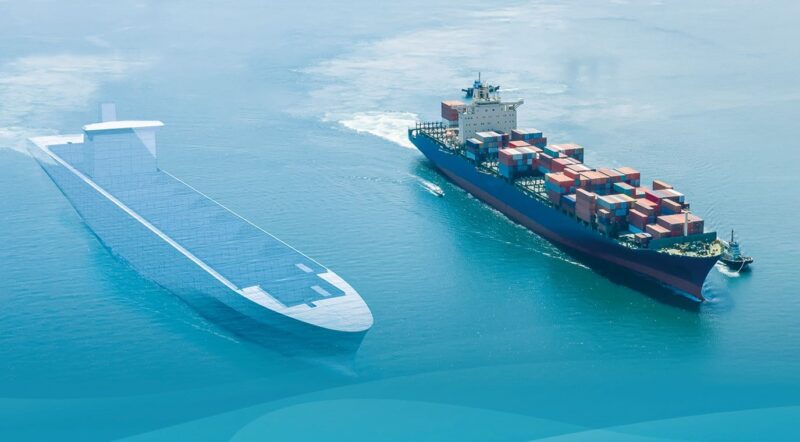May 21, 2025
Digital Twin Project advances to next stage following successful pilot trials
Helsinki, Finland, and Tokyo, Japan – May 21, 2025: ClassNK and NAPA, on behalf of all participating organizations, have today announced the successful completion of Phase 3 pilot trials of the cross-industry Digital Twin Project.
Results from the pilot trials confirmed the feasibility of the platform’s core business scenarios, validating the applications of shared digital twins to enhance collaboration across the maritime value chain between shipowners, shipbuilders, and broader maritime stakeholders.
The trials demonstrated clear benefits in operational efficiency, cost reduction, and digital value creation, while also identifying areas for further improvement – such as data management and security, contract structures, and business model clarity, including platform fees and value assessment.
The Digital Twin Project is aimed at creating a secure data-sharing platform between shipyards and shipowners to advance the use of digital twins throughout a ship’s lifecycle, contributing to improved operational efficiency and safety. The platform will allow the 3D models created during the ship’s design stage to be shared in a secure, access-controlled digital environment, with the stakeholders involved. The aim is to tackle the hurdles around sharing sensitive design and operational data.
Breaking down these data silos enables shipyards to make greater use of ships’ operational data to improve future designs, while other projects will support shipowners and charterers in assessing their fleet’s environmental performance and potential emissions reductions and cost savings. Modeling, meanwhile, will provide a data-driven picture of the future impact of deploying new technologies, such as weather routing, wind propulsion, or batteries, on the vessel’s safety, operations and cargo capacity. It will also be used to validate the performance of new systems once installed on board.
The cross-industry Project includes Nippon Yusen Kabushiki Kaisha (NYK), NYK Group company MTI Co. Ltd. (MTI), Mitsui O.S.K. Lines, Ltd. (MOL), Kawasaki Kisen Kaisha, Ltd. (“K” LINE), Marubeni Corporation (Marubeni) and Marubeni Group company MMSL Japan Ltd., Imabari Shipbuilding Co. Ltd., Japan Marine United Corporation, Mitsui E&S Shipbuilding Co., Ltd., Sumitomo Heavy Industries Marine&Engineering Co., Ltd., Kyokuyo Shipyard Corporation, Usuki Shipyard Co., Ltd., ClassNK and NAPA.

NOTES TO EDITORS
About NAPA
NAPA is a leading provider of software and digital services for the global maritime industry, harnessing data science to enable safer, more sustainable and future-proof shipping. Founded in 1989 to provide smart solutions for ship design, NAPA is now the global reference in shipbuilding, with over 90% of new vessels built by NAPA customers. Today, the company’s expertise spans the entire lifecycle of a ship, from shipyards to operational safety and efficiency at sea. Over 3000 commercial ships globally sail with NAPA safety and efficiency solutions, which include digital ship stability systems that enable a proactive approach to safety at sea, cloud-based performance monitoring that delivers insights to unlock new operational efficiencies, and voyage optimization solutions that help reduce greenhouse gas emissions from voyages. Headquartered in Finland, NAPA employs 200 experts and operates globally, with a presence in Japan, Korea, China, Singapore, the USA, Germany, Greece, Romania and India. For more information, visit: www.napa.fi
About ClassNK
Founded in 1899, ClassNK is a ship classification society dedicated to safer and cleaner seas. ClassNK provides diverse technical services including surveys and classifications of ships and marine structures based on its own rules, statutory certifications on behalf of more than 100 flag states, management system certifications in line with ISO and other international standards. ClassNK joins the project to explore the appropriate ways to assess ship safety in the digital era based on the concept of ClassNK Digital Grand Design 2030. For more information, visit www.classnk.com